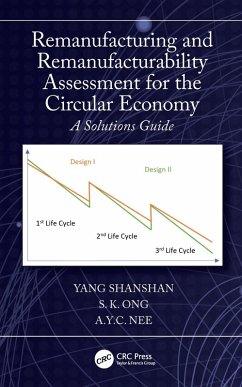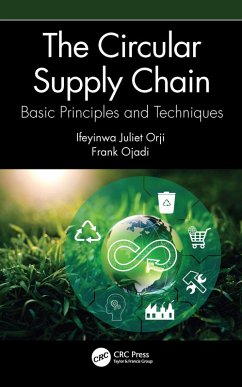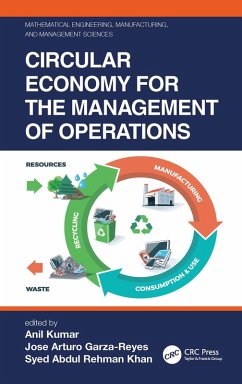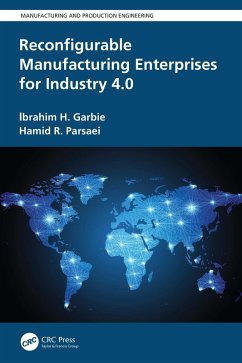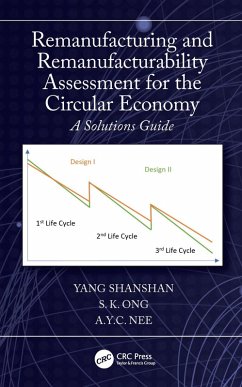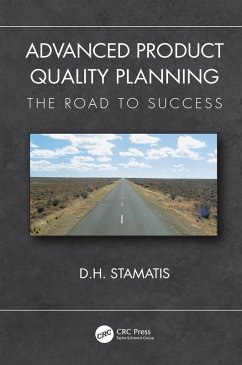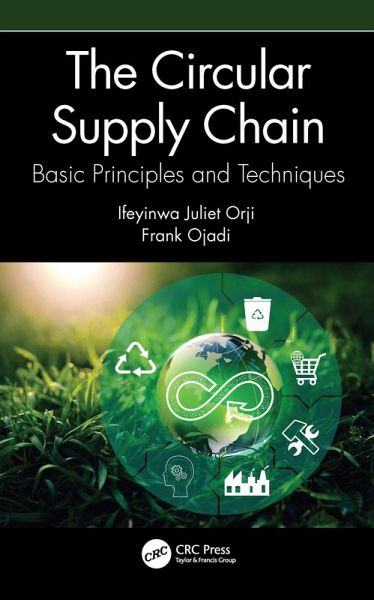
The Circular Supply Chain (eBook, ePUB)
Basic Principles and Techniques
Versandkostenfrei!
Sofort per Download lieferbar
48,95 €
inkl. MwSt.
Weitere Ausgaben:

PAYBACK Punkte
24 °P sammeln!
Organizations need to stay competitive and transition from a linear make-use-dispose supply chain model to a sustainable one. This book covers techniques and basic principles, historical developments and recent issues facing the adoption of a circular supply chain model.The Circular Supply Chain: Basic Principles and Techniques presents the key principles and techniques for the effective integration of a circular economy into supply chains. It discusses sustainability, digitization and the application of blockchain to enhance operations within the realm of Industry 4.0. Principles to assist ma...
Organizations need to stay competitive and transition from a linear make-use-dispose supply chain model to a sustainable one. This book covers techniques and basic principles, historical developments and recent issues facing the adoption of a circular supply chain model.
The Circular Supply Chain: Basic Principles and Techniques presents the key principles and techniques for the effective integration of a circular economy into supply chains. It discusses sustainability, digitization and the application of blockchain to enhance operations within the realm of Industry 4.0. Principles to assist managers in effectively adopting circularity business models for sustainability improvements are provided, along with the historical background, so the reader can have a better understanding for implementation. Case studies and reading comprehension questions are also offered to help with the effective integration of a circular economy into supply chains.
This book is written to assist students, practicing engineers and business professionals that work in the industrial and manufacturing sectors, supply chain management, and with advanced technologies associated with Industry 4.0, sustainability, blockchain and digitalization integration techniques of circular supply chains.
The Circular Supply Chain: Basic Principles and Techniques presents the key principles and techniques for the effective integration of a circular economy into supply chains. It discusses sustainability, digitization and the application of blockchain to enhance operations within the realm of Industry 4.0. Principles to assist managers in effectively adopting circularity business models for sustainability improvements are provided, along with the historical background, so the reader can have a better understanding for implementation. Case studies and reading comprehension questions are also offered to help with the effective integration of a circular economy into supply chains.
This book is written to assist students, practicing engineers and business professionals that work in the industrial and manufacturing sectors, supply chain management, and with advanced technologies associated with Industry 4.0, sustainability, blockchain and digitalization integration techniques of circular supply chains.
Dieser Download kann aus rechtlichen Gründen nur mit Rechnungsadresse in A, B, BG, CY, CZ, D, DK, EW, E, FIN, F, GR, HR, H, IRL, I, LT, L, LR, M, NL, PL, P, R, S, SLO, SK ausgeliefert werden.





